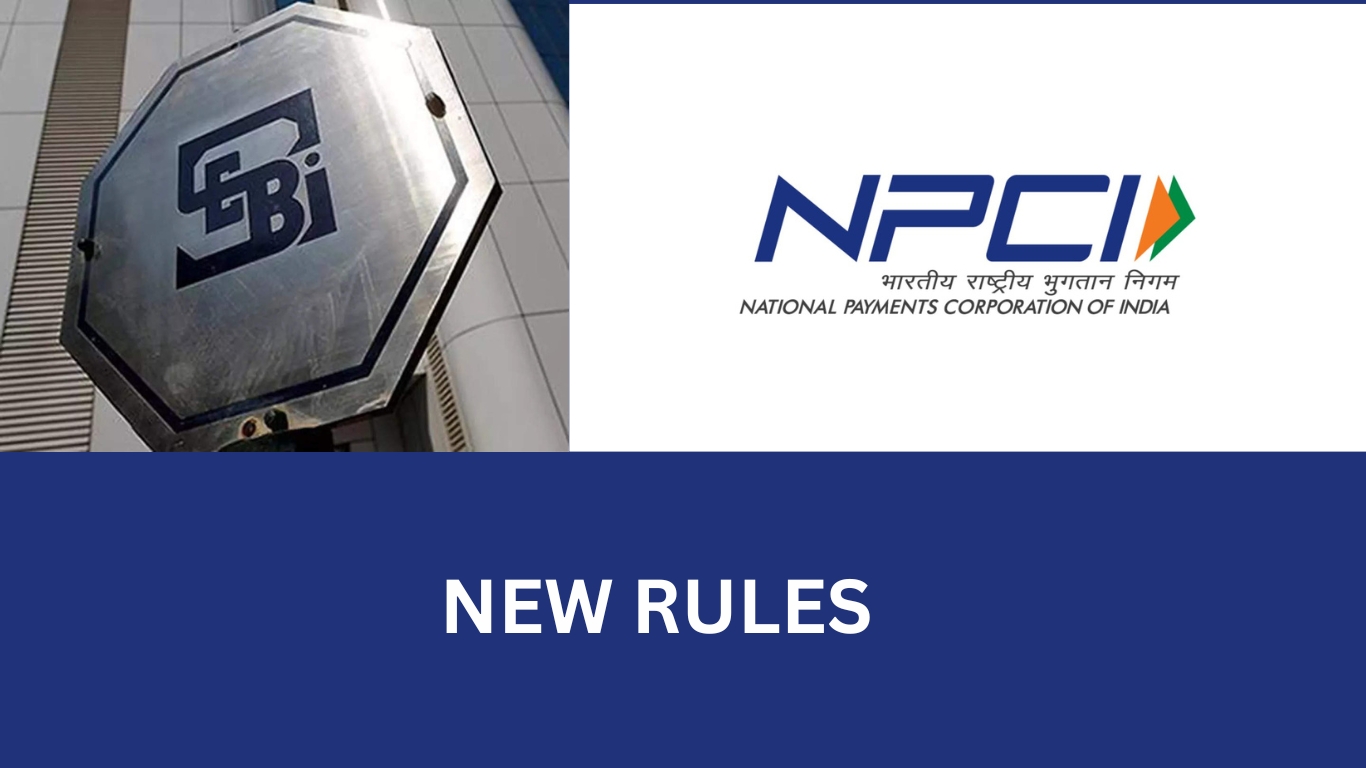How SEBI and NPCI’s new UPI rules are changing the game for investors?
The Securities and Exchange Board of India (SEBI) and the National Payments Corporation of India (NPCI) have introduced new rules that affect how investors can apply for Public Issues of Equity Shares and convertibles.
Why was such a rule required now? What does SEBI wish to enforce by setting such rules in place? And with these developments in mind, what can we expect next for the future? Let’s address these questions one at a time.
These rules are designed to bring greater efficiency to the process and make it more convenient for investors. Here’s what you need to know about these changes without worrying about information overload or jargon!
Details of the new rules
SEBI and NPCI have brought about significant changes in the UPI-based ASBA system to facilitate IPO applications for retail investors. According to the new rules, retail investors can apply for IPOs by using the Unified Payment Interface (UPI), an electronic payment system that allows instant fund transfers between bank accounts.
The per transaction limit for UPI-based ASBA in IPOs has been increased from Rs. 2 lakhs to Rs. 5 lakhs. The new rules require that all individual investors applying in Public Issues where the application amount is up to 5 Lakhs shall use UPI and provide their UPI ID in the bid-cum-application form submitted with any of the entities mentioned in the circular.
These entities include a syndicate member, a stockbroker registered with a recognized stock exchange, a depository participant, and a registrar to an issue and share transfer agent.
Further details worth noting
Moreover, the circular specifies that the UPI-based ASBA shall apply to all Public Issues opening on or after May 01, 2022. It has been issued in the exercise of the powers under section 11 read with section 11A of the SEBI Act, 1992.
The circular is available on the SEBI website under the categories “Legal Framework” and “Issues and Listing.” With the new rules in place, retail investors will have a more seamless and efficient experience when applying for IPOs.
The positives of the new system
The use of UPI in IPOs is expected to improve the efficiency of the payment process and reduce the time taken to complete the allotment of shares. With the introduction of UPI, investors can initiate payment from their mobile devices, making the payment process more convenient and user-friendly.
Moreover, UPI is a 24×7 payment system that enables investors to make payments anytime, anywhere, which will be a huge advantage for investors who do not have access to physical banking infrastructure or prefer digital payment methods.
Another positive aspect of UPI-based ASBA is the elimination of the need for physical forms and cheques, which can be time-consuming and prone to errors. The entire payment process can be completed digitally, eliminating the need for investors to visit bank branches or fill out forms by hand.
This will save investors time and effort, reducing the chances of errors that could cause delays or rejections in the allotment process. Finally, UPI is a highly secure payment mechanism that ensures the safety and confidentiality of transactions.
With the use of UPI, investors can be assured that their payments are safe and protected by advanced encryption and security protocols. The convenience and security of UPI-based ASBA are expected to boost investor confidence and participation in the IPO process.
This is a positive development for the overall growth and development of the Indian capital markets. Not only does it make transactions quicker and smoother, but it also makes them secure and two-way encrypted.
The negatives of the new system
While the new rules have many positives, there are some potential downsides to these rules, as well. One concern is that investors who are not familiar with UPI may find it difficult to navigate the process, especially if they are not tech-savvy.
Another possible negative is that some investors may feel uncomfortable with the idea of linking their bank account to UPI. Furthermore, some investors may prefer to use other payment methods that they are more familiar with, such as net banking or credit/debit cards.
As with any new system, there may be a learning curve for some users and it is all a matter of adapting to change. Furthermore, the benefits of a faster, more streamlined payment process and greater convenience for investors are likely to outweigh the negatives in the long run.
Conclusion
We have now delved deeper into the latest updates from SEBI while considering both the potential positives and negatives. Overall, SEBI and NPCI’s new UPI rules represent a significant change in the way investors can apply for Public Issues of Equity Shares and convertibles.
While there may be some challenges to overcome, the benefits of the new system are expected to make the process faster, more convenient, and more secure. If you’re an investor, it’s important to stay informed about these changes so that you can make the most of them.
Check out as much information as you can and consume updates only from authentic sources. If you are new to the world of UPI, try researching it a bit and ask reliable people to help you set it up. As the world of technology keeps evolving, it makes the most sense to adapt to it!




